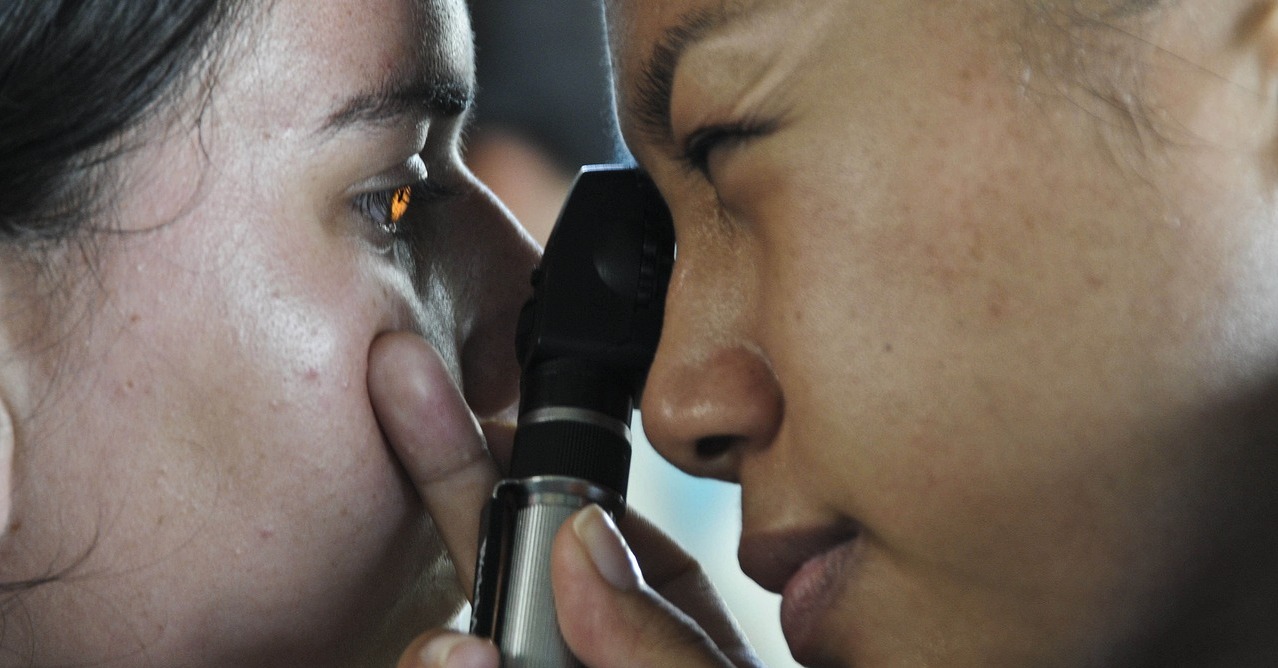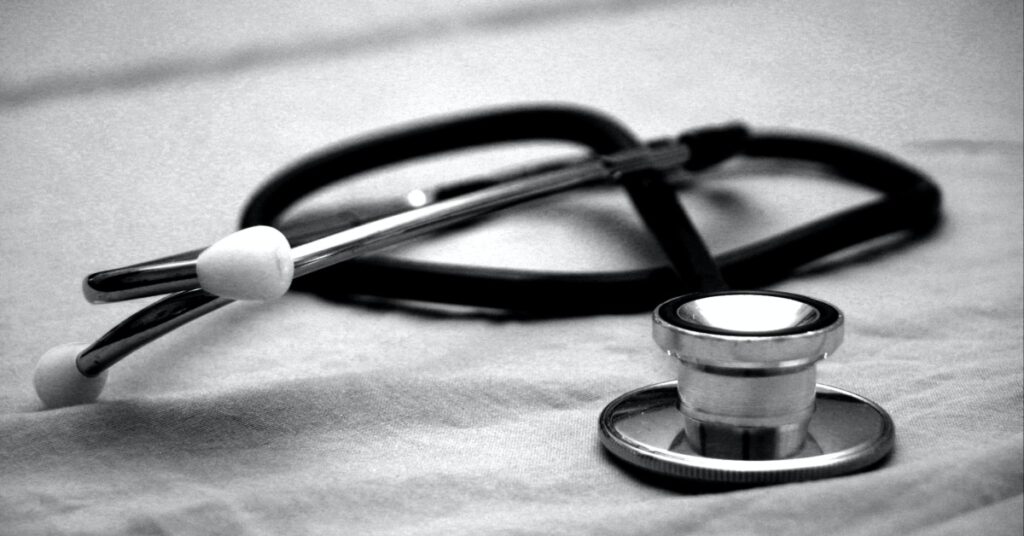
Diversity and Inclusion in Optometry
To promote diversity in the eye care profession, colleges of [...]

Racial health disparities persist in the US healthcare system, exerting a significant impact on public health. “African Americans and other people of color are subject to so many additional stressors, resource limitations, and external constraints that all of these things turn up way downstream in their health outcomes,” says Tasleem Padamsee, assistant professor of health services management and policy at Ohio State University (Main Campus). “That is a result of the many different ways that race is structured into our society.”
Access to care isn’t the only issue POC face, however. Studies show that minority patients benefit from having minority doctors; one of the easiest ways to make that happen is to train more Black and Brown providers. Currently, only five percent of doctors identify as Black or African American.
The good news is that more minorities have gone into public health professions in the past decade than in years before. Black Americans are acutely aware of the racial issues infecting the US healthcare system, and many hope to effect change by entering healthcare professions. Historically Black colleges and universities (HBCUs) are stepping up to train a new generation of public health professionals who want to improve US health equity.
In this article about HBCU public health programs, we cover:
The Master of Public Health (MPH) is the degree for anyone who wants to make people healthier on a grand scale. MPH programs at both HBCUs and Predominantly White Institutions (PWIs) prepare students for a broad range of public health careers because they are concentration-based. Earning an MPH nearly always means choosing a specialization like:
It might make more sense to call the MPH a category of related degrees, as the curricula in these concentration or specialization tracks can vary widely and lead to very different public health careers.
People generally enroll in Master of Public Health programs because they’re passionate about improving the lives of people and populations. What sets the public health programs at HBCUs apart is their focus on social justice and health equity. Jackson State University‘s MPH program, for example, gives students the skills and knowledge they’ll need to “respond to the challenges posed by disparities in health and healthcare affecting minorities and other historically underserved populations.”
There are just over 100 HBCUs in the United States—many of which have master’s-level public health programs accredited by the Council on Education for Public Health. These include:
Bethune-Cookman University in Daytona Beach, Florida, has a 45-credit hour MPH in Health Equity that explores public health in the context of social justice, equity, and leadership. Students complete the residential, cohort-based program over five sequential semesters and graduate in just under two years.
CDU in Willowbrook, California, offers an MPH in Urban Health Disparities specifically designed for working adults. Classes meet in the evenings, with a curriculum focused on social determinants of health. Students work in real-world settings in South Los Angeles, developing hands-on skills that empower them to advocate for and promote social justice and health equity in underserved communities of color.
FAMU in Tallahassee launched the first online MPH degree offered by an HBCU, and the school’s program continues to be one of the top producers of African American public health professionals in the US. FAMU’s Institute of Public Health designed the school’s program for flexibility—much of the MPH coursework is delivered asynchronously. Students benefit from the Institute of Public Health’s connections to the CDC, EPA, Florida Department of Health, and other health-focused organizations.
Howard University’s 18-month interdisciplinary Master of Public Health program doesn’t have specialization tracks. Its curriculum emphasizes the elimination of health disparities in both required courses and electives. This is another program designed for working adults, with core classes delivered in the evening on the Washington, DC campus. Coursework covers topics related to research, practice, teaching, administration, and policy development. Students graduate prepared to work in a variety of public health careers.
Jackson State’s 45-credit hour MPH program is open to both full-time and part-time students. Full-time students taking classes on the school’s Jackson, Mississippi campus can usually complete the program in about two-and-a-half years, while students in the part-time MPH program may require two or more additional semesters to finish. Concentration options include epidemiology, health policy and management, and behavioral health promotion and education. Graduates are prepared to respond to disparities in health and healthcare affecting minorities and other historically underserved populations.
Meharry Medical College in Nashville is unusual in that it offers a 45 credit-hour Master of Science in Public Health (MSPH) instead of a traditional MPH. The choice is intentional. According to the MSPH program notes, the Meharry MSPH curriculum dives deeper into scientific knowledge and competencies than most MPH programs, and graduates are taught to make public health decisions based on strong scientific evidence.
One of Morehouse College’s aims is to increase the diversity in the health professions and science. Its generalist MPH program seeks to increase the number of minorities in public health leadership positions. Students studying on the Atlanta, Georgia campus take core courses in foundational public health theory, evidence-based practice strategies, and leadership.
Morgan State in Baltimore, Maryland, offers another HBCU public health master’s program with a broad general focus. The 48-credit curriculum is designed around the five main public health competencies—environmental health, biostatistics, epidemiology, health policy and administration, and social and behavioral sciences—and trains students to define and assess urban public health problems. Graduates often launch careers focused on urban health issues.
The 42-credit hour MPH program offered by Tennessee State University’s College of Health Sciences (also located in Nashville) has two specialization tracks. Students choose between behavioral science and public health science and cultural competency, though it’s worth noting that both concentrations emphasize cultural competency.
Tuskegee University’s Graduate Public Health Program is relatively new, having launched in 2011. Today, the school (located in Tuskegee, Alabama) offers what it bills as both an MPH and a Master of Science in Public Health. Students in the 46-credit hour program don’t choose a concentration. Instead, they take various core classes related to the five main areas of public health plus electives in related disciplines like nutrition and maternal and infant health.
University at Albany’s two-year MPH includes professional internships so students can begin working right away to support vaccine development, eradicate infectious diseases, reduce maternal and infant mortality, ensure food safety, and improve healthcare access in underserved populations. In addition to full-time and part-time on-campus programs, the school also offers an online MPH program for working professionals.
The Fay W. Boozman School of Public Health at the University of Arkansas offers a 42-credit hour MPH. Students can choose from among the following concentrations: biostatistics, epidemiology, environmental and occupational health, health behavior and health education, and health policy and management. A sixth MPH concentration—rural and global public health—is available exclusively online. Classes in the online MPH program are delivered asynchronously for maximum flexibility.
The 45-credit hour MPH in Health Equity program at this New Orleans HBCU is only offered on-campus. Classes are scheduled in the late afternoon and evening hours to accommodate the schedules of working adults. Students are assessed on their understanding of evidence-based public health strategies, health care systems, public health planning, and leadership.
Historically Black colleges and universities occupy a vital niche in health sciences education. Structural inequality and prejudice still exist in both higher education and in the health sciences professions. Black students and other minority students who feel uncomfortable and unsupported at PWIs often thrive when enrolled in HBCUs. One Gallup study surveyed more than 50,000 HBCU graduates over two years and found that Black students feel more supported at HBCUs and more confident that their degree programs would prepare them for life after graduation. Most also reported that their professors cared about their success and encouraged them to pursue their goals and dreams. This may be because students in HBCU public health programs see more diversity in professors, faculty, and mentors.
The application process and general prerequisites are typically the same at HBCUs and PWIs, but academic and professional prerequisites vary widely by school. Some people think historically Black colleges and universities are easier to get into, but that’s not necessarily true—and certainly not when it comes to MPH programs. HBCUs, like public health master’s programs at many other schools, typically consider applicants from academic and professional backgrounds unrelated to healthcare or health policy. They require applicants to have bachelor’s degrees, but there are no requirements related to baccalaureate major or prerequisite coursework.
Most HBCU MPH programs require applicants to meet a cumulative undergraduate GPA threshold and to submit GRE scores. Some graduate school programs publish minimum required scores, while others don’t. Like all colleges and universities, HBCUs ask applicants for various materials. You might need to submit a resume and professional recommendations that show you have worked in roles related to healthcare, health policy, or public health. Some schools ask for detailed personal statements outlining applicants’ reasons for launching public health careers.
Always read application guidelines carefully. That’s the only way to be sure you meet each school’s requirements. Consider completing an application-boosting internship or research assistantship in public health before applying.
The classes you take in an HBCU MPH program depend either on the concentration you choose or the concentration a school offers. The core coursework in generalist public health master’s programs touches on topics like:
HBCUs differ in how they treat concentrations. Some programs require all MPH students to take core classes related to public health and electives related to their specialization. Others weave concentration content into the foundational curriculum. At Xavier University of Louisiana, for instance, MPH in Health Equity students take core courses like Health Equity Principles and Practices and Determinants of Health Equity, and can choose from among electives like:
HBCUs have a reputation for being budget-friendly, and that reputation is well deserved. Across programs, HBCU tuitions are about 30 percent lower than those of comparable non-HBCU institutions.
Unsurprisingly, HBCU public health programs tend to be less expensive than comparable programs at PWIs. When they aren’t, they tend to offer substantial financial support to low-income and first-generation college students. Don’t assume, however, that enrolling in an HBCU always means paying less. Sure, students in Jackson State University’s MPH program pay less than $10,000, making it one of the least expensive HBCU public health programs, but Howard University students pay about $16,000 in tuition each semester. HBCU tuitions encompass a broad range; make sure to check before applying.
HBCU MPH graduates work in sectors like:
They have titles like:
HBCUs have traditionally played a key role in the education of POC in medicine and the health sciences. These schools produce 27 percent of Black graduates in STEM fields. HBCUs are some of the top producers of Black nurses, physician assistants, and doctors in the US. And thanks in part to HBCUs, there has been a substantial increase in the number of public health degrees awarded to POC.
The bottom line is minority health professionals are accepted more readily by minority communities, and POC who work in public health are often better able to identify not only issues affecting these communities but also the structural inequality and biases fueling those issues. You don’t have to choose an HBCU just because you’re Black. There are plenty of white students enrolled in HBCUs and plenty of minority students at PWIs. However, you might find that HBCU public health programs do more to set students up for success in public health careers—and to improve the health of underserved and overlooked minority communities, as a result.
Questions or feedback? Email editor@noodle.com

To promote diversity in the eye care profession, colleges of [...]

Students in HBCU DPT programs often find their schools are [...]
Categorized as: Public Health, Nursing & Healthcare